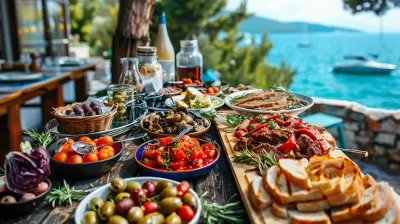How to Find the Best Local Markets and Street Food
23 May 2025
Nothing screams authentic travel experience like diving headfirst into a bustling local market or chowing down on sizzling street food straight from a vendor’s cart. This isn’t just about eating—it’s a full-on cultural immersion. But let’s be real: not all markets are created equal, and no one wants to waste precious stomach space on mediocre bites. So, how do you sniff out the real local gems and avoid the tourist traps? Buckle up, foodies, because we’re about to spill all the secrets. 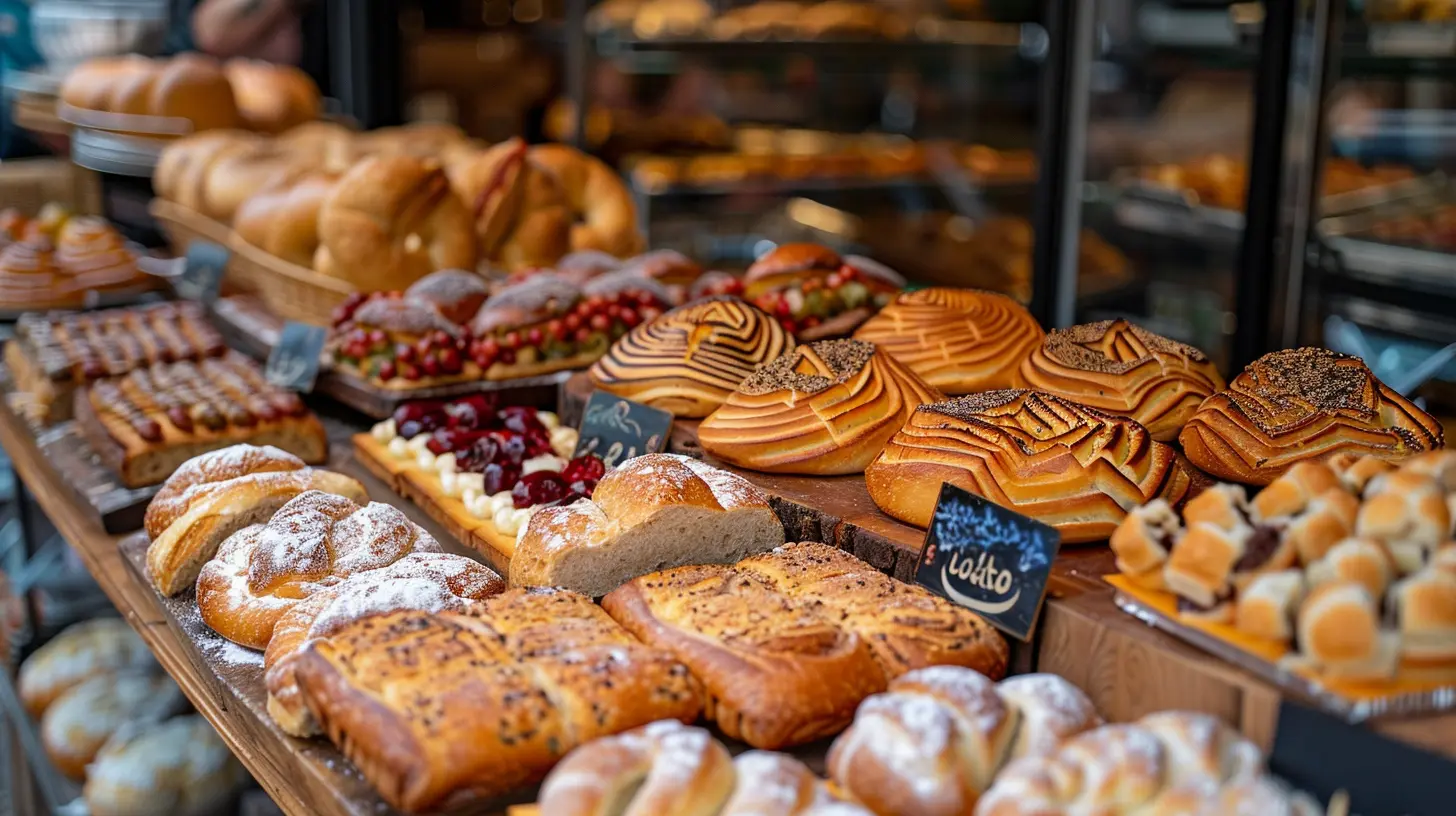
Why Local Markets and Street Food?
First things first—why should you ditch fancy restaurants and go hunting for street eats?- Authenticity – This is where locals eat, not just where they send tourists.
- Affordability – Delicious, fresh, and usually way cheaper than a sit-down meal.
- Variety – From spicy skewers to sweet pastries, you get to taste a little bit of everything.
- Culture – Food is history on a plate. Every dish tells a story, and markets are where you hear them loudest.
Now, let’s get you on the fast track to foodie heaven. 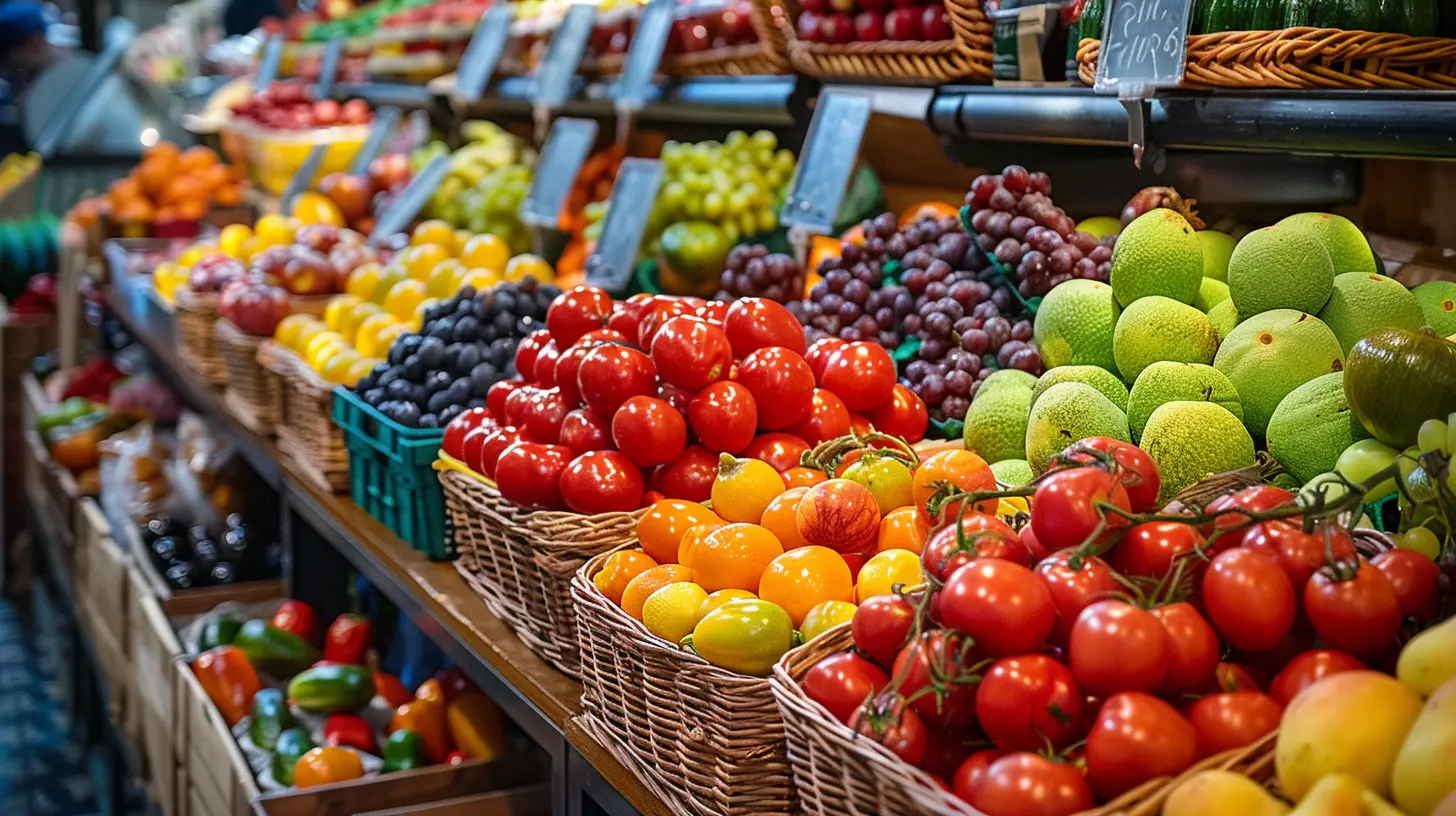
Step 1: Do Your Research (But Not Too Much)
Before you even step foot in a market, do some digging. But don’t over-plan—part of the fun is in the discovery.Use Social Media and Blogs
Instagram, TikTok, and travel blogs are your besties here. Search for hashtags like:- #LocalMarket [City]
- #StreetFood [City]
- #FoodieAdventures
Watch reels, bookmark posts, and make a mental checklist of what looks insanely delicious.
Google, But With Caution
While Google is great for general recommendations, it often lists places everyone already knows about (read: overpriced and overcrowded). Dig a little deeper—scroll past the first page, and look for posts from actual travelers or locals.Ask the Locals
Forget the hotel concierge—they’re sending you to places tourists go. Instead, chat up taxi drivers, bartenders, or shopkeepers. These people actually eat in these markets, so they know what’s up.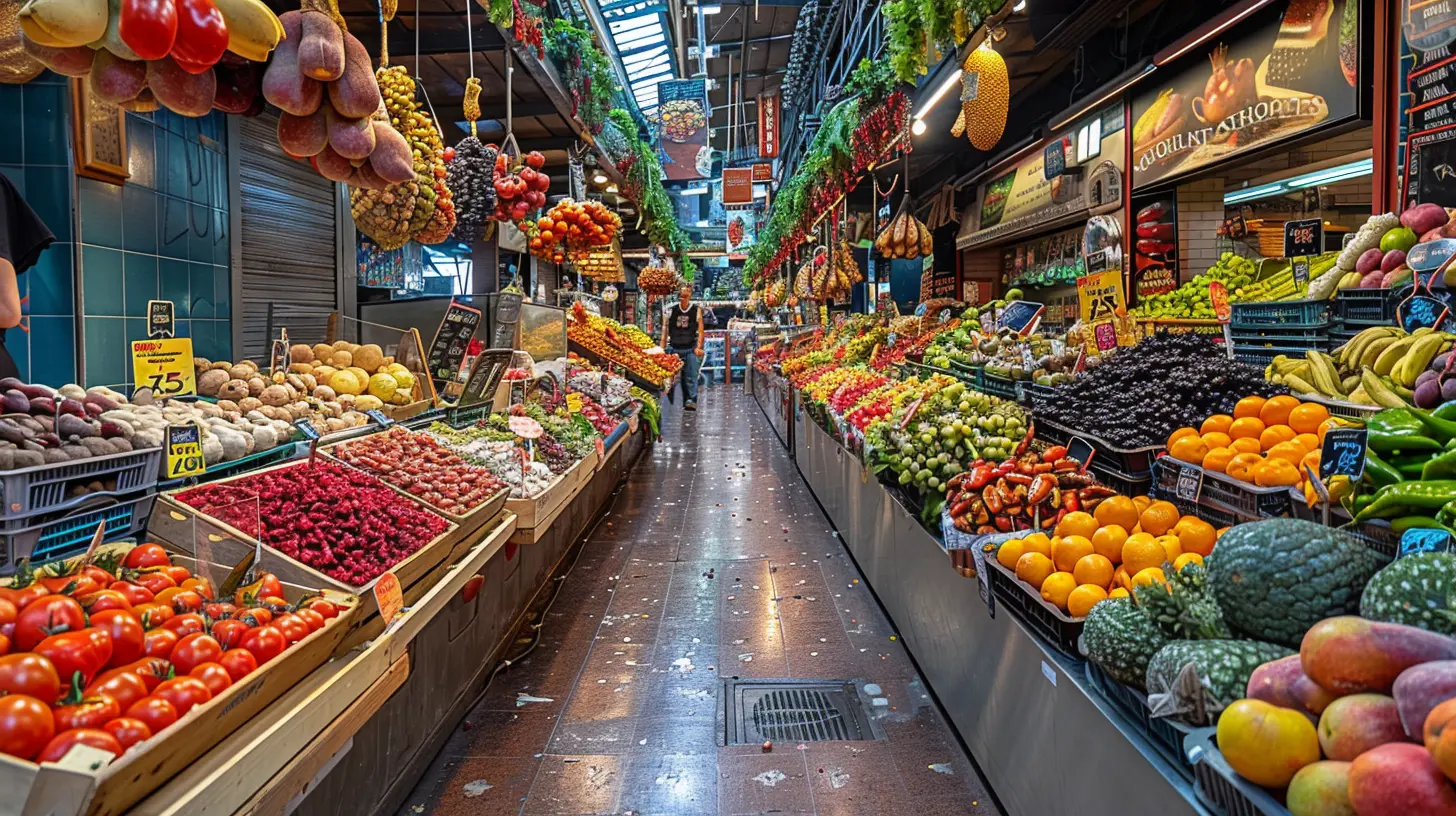
Step 2: Spot the Real Markets (and Avoid the Tourist Traps)
Check Out the Crowd
If most people around you are holding maps and wearing "I ❤️ [City]" shirts, abort mission. A great market has locals doing their daily shopping, not just tourists snapping Insta-worthy pics.Follow Your Nose
Good food smells amazing. If a market doesn’t have that warm, fragrant, mouthwatering aroma wafting through the air, move along.Observe the Vendors
- Are they cooking fresh food right in front of you? ✅- Is there a long line of locals? ✅
- Do they seem rushed and constantly serving? ✅
These are good signs. On the flip side, avoid places where food sits under heat lamps for hours or looks like it’s been microwaved one too many times. 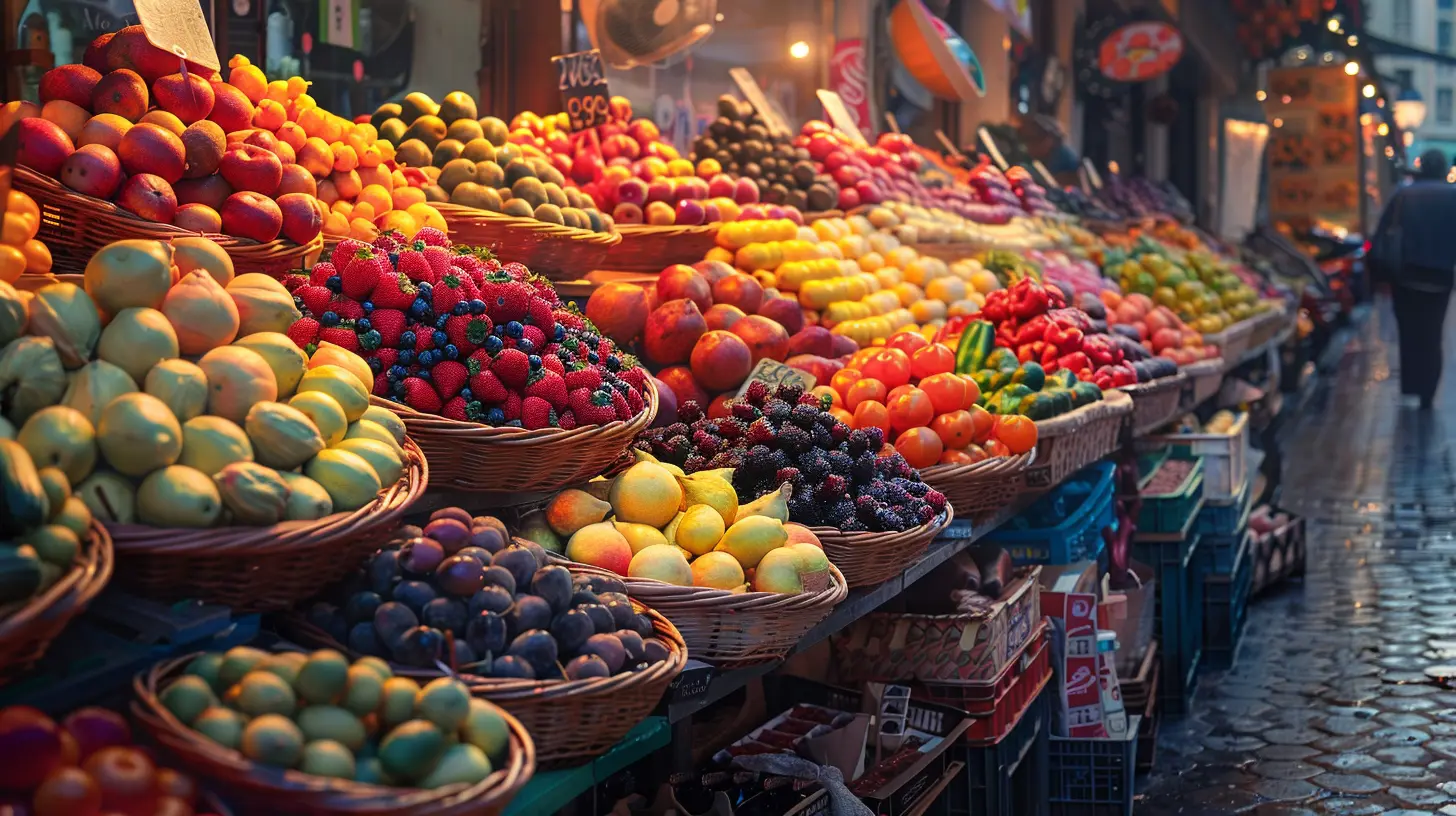
Step 3: Master the Art of Ordering Like a Pro
Nothing screams clueless tourist like standing in a market, staring at a menu like it’s written in an alien language. Here’s how to handle it:Observe First
Before jumping in, watch what other people are ordering—especially locals. If you see ten people in a row asking for the same dish, that’s what you should be eating.Use the Local Lingo (Even If It’s Broken)
Trying to speak a few words in the native language doesn’t just make you look cool—it often earns you respect and sometimes even a little extra food. Learn to say:- "What do you recommend?"
- "Is this spicy?"
- "One, please!"
Embrace the Mystery Dish
Sometimes, the best bites are the ones you didn’t expect. If a vendor proudly suggests something, roll with it. Worst case? You don’t like it. Best case? You discover your new favorite food.Step 4: Stay Safe Without Being Paranoid
Street food is amazing, but no one wants a side of food poisoning. Here’s how to eat fearlessly (but wisely).Go Where It’s Busy
High turnover = fresh food. If a stall is packed, it means everything is being cooked and sold quickly.Check the Cooking Process
Watch how the food is being prepared—if it’s grilled, fried, or boiled fresh in front of you, your stomach is probably safe.Avoid Sketchy Water and Ice
In places where tap water isn’t safe, stick to bottled drinks. That fancy shaved ice might look appealing, but unless you know the ice is made from filtered water, proceed with caution.Step 5: Market Shopping Hacks
Markets aren’t just about food—they’re treasure troves of spices, snacks, and souvenirs. Here’s how to shop like a pro:Haggle With Confidence (But Be Respectful)
In many countries, haggling is part of the game. Start low, smile, and negotiate with charm. But remember, vendors are trying to make a living—don’t be that tourist who argues over pennies.Bring Small Bills and Cash
Most market vendors don’t take credit cards, and handing over a giant bill for a $2 item? Rookie move. Small notes and coins make transactions smoother.Taste Before You Buy
Many vendors offer free samples—take advantage! Whether it’s cheese, fruit, or spices, try before you commit.Step 6: Capture the Moment (Without Being That Tourist)
Yes, markets are a feast for the eyes as well as the stomach. But don’t be so focused on snapping the perfect shot that you forget to enjoy the moment.Be Respectful With Your Camera
Not every vendor wants their face plastered all over social media. If in doubt, ask before recording or snapping close-ups.Take Candid, Not Staged Shots
The best food photos? The ones that capture the real experience—oil sizzling on the grill, noodles being tossed in the air, a vendor’s hands moving fast. Forget the overly posed shots—go for real, raw, and delicious.Final Thoughts: Eat, Savor, Repeat
Local markets and street food aren’t just about filling your stomach—they’re about experiencing a place through its flavors. Whether you’re slurping pho on a tiny plastic stool in Vietnam, munching on tacos from a roadside stand in Mexico City, or devouring fresh mango sticky rice in Bangkok, these bites tell a story.So go forth, food adventurer! Get lost in the markets, trust your taste buds, and, most importantly—never say no to trying something new.
all images in this post were generated using AI tools
Category:
Travel HacksAuthor:

Taylor McDowell
Discussion
rate this article
4 comments
Preston Newton
Great tips! Exploring local markets and street food is the best way to experience authentic cuisines. Happy travels!
June 16, 2025 at 3:50 AM

Taylor McDowell
Thank you! I completely agree—immersing yourself in local markets and street food is truly the heart of experiencing authentic cultures. Happy travels to you too!
Camille Gomez
What a delightful guide! Exploring local markets and savoring street food is one of the best ways to experience a new culture. Your tips are spot-on—can’t wait to dive into the vibrant flavors and lively atmospheres. Happy travels and happy eating, everyone! 🍽️🌍✨
May 30, 2025 at 4:32 AM

Taylor McDowell
Thank you! I'm so glad you enjoyed the guide. Wishing you amazing culinary adventures ahead! 🍴✨
Juliet Martinez
Great article! Exploring local markets and indulging in street food is one of the best ways to immerse yourself in a new culture. Your tips on asking locals and using social media for recommendations are spot on. Can’t wait to try these methods on my next adventure! Happy travels!
May 29, 2025 at 3:23 AM

Taylor McDowell
Thank you so much! I'm glad you found the tips helpful. Happy travels and enjoy your next culinary adventure!
Zinn Jackson
Exploring local markets and street food is an invitation to engage deeply with a culture. Each bite tells a story, revealing the traditions, flavors, and creativity of a community. Embrace the unfamiliar, for it is in these authentic experiences that we truly connect with the essence of a place and its people.
May 27, 2025 at 2:31 AM

Taylor McDowell
Absolutely! Local markets and street food provide a unique lens into a culture's heart and soul. Embracing these experiences is key to understanding and appreciating the richness of diverse communities.

